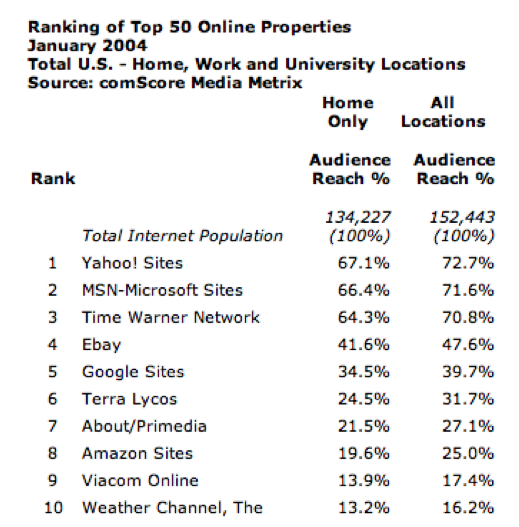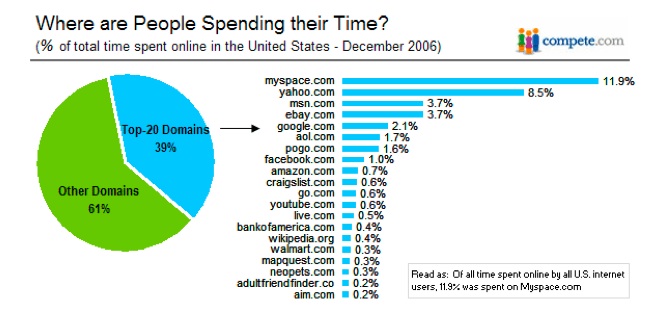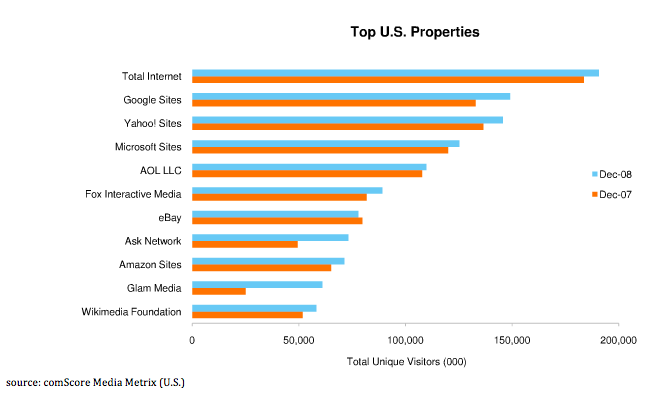 , vice president of strategy and business development for Slide
, vice president of strategy and business development for Slide , the social entertainment company. Prior to Slide, Keith was a VP at LinkedIn and an EVP at PayPal in charge of among other things, competitive strategy vis-à-vis eBay. He also worked at eBay for three weeks following its acquisition of PayPal. Keith currently serves on the Board of Directors of Yelp, Vendio, Xoom and FanIQ.
, the social entertainment company. Prior to Slide, Keith was a VP at LinkedIn and an EVP at PayPal in charge of among other things, competitive strategy vis-à-vis eBay. He also worked at eBay for three weeks following its acquisition of PayPal. Keith currently serves on the Board of Directors of Yelp, Vendio, Xoom and FanIQ.On Monday afternoon, I was speaking on a panel at the Social Graph Symposium when the moderator asked me what eBay could do to revitalize its marketplace by leveraging the social graph. Dave McClure,
 like many pundits, presumes the social graph could be a great boost for eBay, if not an outright panacea. I replied, “nothing.”
like many pundits, presumes the social graph could be a great boost for eBay, if not an outright panacea. I replied, “nothing.” It’s actually the social graph and similar products that have placed a stake in eBay.com. Most often, people blame eBay’s decay on factors like the weakening economy, the rise of Amazon, as well as eBay’s own inefficient search functionality. But the real and simple reason is eBay is no longer fun. Over the years, it has lost online ground and eyeballs to pure entertainment destinations such as YouTube and social networking sites like MySpace and Facebook.
Do It eBay

Although it was always classified as an e-commerce destination, the quirkiness of the eBay marketplace was once a major source of entertainment on the Web. It was where people sought and bought everything from the first broken laser pointer to Beanie Babies to Bob Dylan’s boyhood home
 . While the catch—anything from an antique clock to a Gulfstream II—was rewarding for the buyer, it was generally the entertainment and excitement of the chase that brought a buyer to eBay in the first place.
. While the catch—anything from an antique clock to a Gulfstream II—was rewarding for the buyer, it was generally the entertainment and excitement of the chase that brought a buyer to eBay in the first place. When eBay launched its first U.S. advertising campaign in 2000, eBay spokesman Kevin Pursglove stated, “We hope they [the ads] reflect the fun that people have when they come to our site.” According to USA Today,
 “the fun aspect of eBay seems to have struck a chord with consumers.” At that time, eBay was downright addictive and when you won an auction, it was thrilling. That delight kept people coming back for more, whether or not they actually prevailed with their bids.
“the fun aspect of eBay seems to have struck a chord with consumers.” At that time, eBay was downright addictive and when you won an auction, it was thrilling. That delight kept people coming back for more, whether or not they actually prevailed with their bids. Almost half the U.S. Internet population
Let’s rewind to 2004, just a short five years ago. In January 2004, almost 50 percent of the entire U.S. Internet population visited eBay each month. If people were bored at work, chances are they were surfing the pages of eBay and unearthing eccentric auction items they never even knew existed. This was the height of the eBay heyday.

So what happened?
With the fun factor driving eBay usage, what really stole eBay’s limelight was the rise of social networking sites such as MySpace and Facebook and the likes of YouTube. In December 2006, almost half of the U.S. Internet population was still visiting eBay. But when you examine the total amount of time spent online, 11.9 percent was spent on MySpace versus 3.7 percent on eBay (according to Compete.com). By then, people were already devoting more of their online time to pimping out their MySpace profiles or snacking on YouTube’s videos.

eBay strips out the fun
This was not lost on all of eBay. As early as 2006, several executives championed an internal effort dubbed “eBay 3.0.” The new vision for eBay was to resurrect the “fun” of auctions. An ad campaign labeled “Windorphins”
 was meant to remind consumers of the endorphin rush experienced when winning an auction. The purchase of StumbleUpon even had a rationale in this model. The ideals fueling eBay 3.0 eventually fizzled.
was meant to remind consumers of the endorphin rush experienced when winning an auction. The purchase of StumbleUpon even had a rationale in this model. The ideals fueling eBay 3.0 eventually fizzled. By the time John Donahoe took the helm of eBay in Q1 2008, he opted to “aggressively change our product, our customer approach and our business model.” In a futile effort to compete with Amazon and Google, eBay leadership essentially stripped whatever remaining fun existed out of its marketplace. In December 2008, eBay’s visitors accounted for only 1.5 percent of total minutes spent online (according to comScore Media Metrix). The leader board for top online properties showed Google, home of YouTube.com, and Fox Interactive Media, which includes MySpace.com, in the top five. EBay ranked sixth in total unique visitors, but was also the only property on the top 10 list to see a decline from 2007.

Where did all the fun go?
Ironically, at one point right after it bought PayPal, eBay had the leading actors of most of this entertainment revolution sitting in its offices. Chad Hurley and Steve Chen of YouTube fame, Peter Thiel (Facebook), Jeremy Stoppelman (Yelp), Max Levchin (Slide), David Sacks (Geni and Yammer), Reid Hoffman (LinkedIn, board member of Zynga) and others, myself included, were all too alienated by eBay’s bureaucratic and political MBA culture. So we decided to create our own fun elsewhere instead.